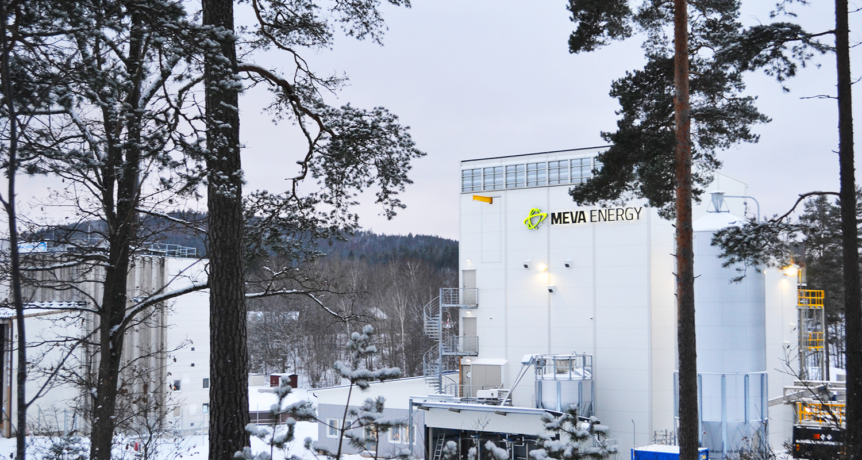Meva Energy, a leading producer of biogas and biochar, proudly announces that the company has been awarded with a sustainability certificate according to the Sustainability criteria act by the Swedish Energy Agency for its production facility in Kisa. This confirms Meva Energy’s dedication to mitigating climate change and contributions to renewable energy solutions for its customers.
The Sustainability certificate, decided by the Swedish Energy Agency, serves as proof that the managed and produced biofuels meet established criteria under the Law on Sustainability criteria for biofuels, bioliquids and biomass fuels, and according to the Renewable Energy Directive (RED) including nature protection purposes, greenhouse gas emissions savings, transparency and traceability.
Meva Energy has carefully implemented a control system with procedures to ensure compliance with the sustainability criteria and has conducted greenhouse gas emissions calculations to demonstrate that biosyngas contributes to significant greenhouse gas emissions savings, far above the legal reduction of 70%.
The control system, together with the greenhouse gas emissions calculations, has undergone an independent audit, which formed the basis for the decision by the Swedish Energy Agency.
”Meva Energy’s strategy is to offer sustainable energy solutions for our customers, the manufacturing industry, by utilize local biogenic industrial waste-streams,” says Sara Palander, Sustainability Manager at Meva Energy. ”This Sustainability certificate strengthens our ability to deliver renewable energy fulfilling the sustainability criteria throughout the whole production chain, and in line with our strategy without compromising environmentally.”
For customers, this sustainability decision ensures that Meva Energy’s biofuel is sustainable and meets legal criterias, significantly reducing their overall greenhouse gas emissions.
Meva Energy looks forward to continuing its work in evaluating various biogenic waste streams to ensure sustainable biomass utilization. The company will also focus on knowledge building about biochar and its role in mitigating climate change, through its carbon sink potential as an existing CDR technology or a potential substitute for fossil carbon in various manufacturing processes. When utilizing the biochar, the whole gasification plant will contribute to negative carbon dioxide emissions.

